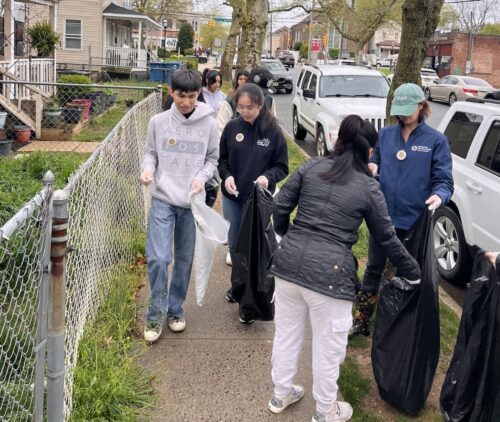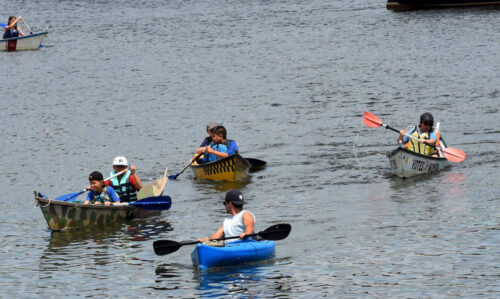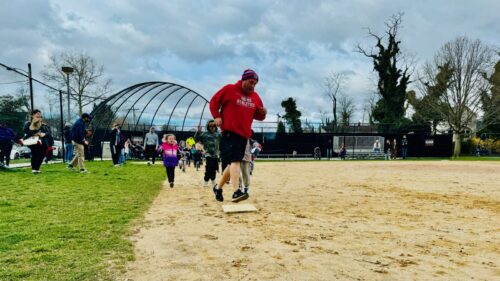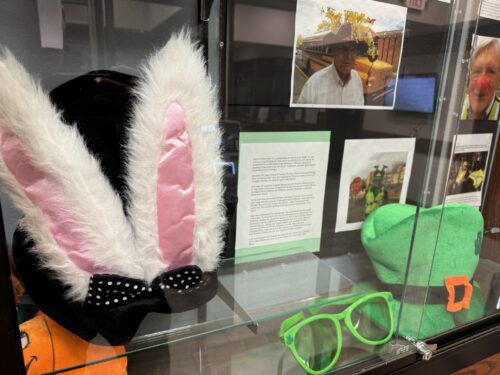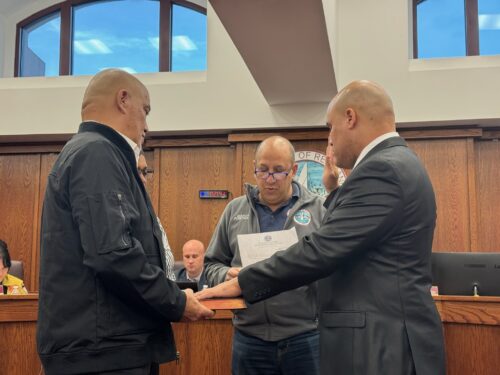Late in the first half of Monmouth Rugby Football Club’s April 28 match against Bayonne at Thompson Park, a Monmouth player slowly righted himself from the turf after taking a hard tackle.
It was a while before he was unsteadily back on his feet. By the time he was, the action in the game had moved nearly to the opposite corner of the pitch. But this guy was going nowhere. Limping along the sideline, he signaled to Monmouth Coach Brian Muller that he needed to come out.
Muller, though, told the player he had no one to sub for him, and turned his attention back to the ongoing action. The player stayed in and shook off his injuries enough to carry on.
Just another day on the pitch in one of the world’s more primitive team sports, a game of tissue-scraping, bone-bruising beauty. And afterward, the ‘lads’ from both squads (you hear the word ‘lads’ a lot at a rugby match, often shouted with an Irish or English accent) went off for a therapeutic pint or two.
This Saturday is Monmouth Day, the club’s big annual homecoming of sorts. The highlight, on the match side, is a round-robin in which three squads Union, Princeton (not affiliated with the university) and host Monmouth all play each other for 40 minutes (compared to the usual 80) in a best-of-three tourney.
For local fans of ruggers, or those curious about this curiously anachronistic predecessor to American football, it should be quite a treat.
Afterward, the players, their families, and even the spectators will be invited to Monmouth’s Tudor-style clubhouse on Shrewsbury Avenue in Red Bank for barbecue, live music and drinks.
“There’s a lot of good rugby during the day, and then a party back at the clubhouse,” says Frank Fischer, the club’s social director.
Like so much about the sport, the event has deep roots in tradition.
“It’s one of the few sports where, after you’ve knocked each other silly, you congratulate each team with three cheers, go to a clubhouse or bar, and the host team buys the drinks for the visiting team,” says Fischer. “There’s no hard feelings. Everything is left on the field.”
The Monmouth club began in 1973 as the Brookdale Rugby Club and took on the present name four years later. The club has a women’s team, too.
Fischer, a 55-year-old lawyer, played for 35 years and only gave it up about a year ago after the decades of getting banged around took its cumulative toll on his limbs.
There’s no equipment to speak of. Blocking is prohibited, which apparently eliminates a lot of the knee and other injuries common to football but of course often exposes ballcarriers to hard hits. Tackling can be violent, yes, but there are rules governing types of take-downs to prevent wantonness. The tackler must use his arms, for example, rather than simply flinging his shoulder or torso.
“It’s your body against someone else’s body,” says Fischer. “It’s not like someone spearing you with a football helmet and not worrying about getting hurt. No one’s going to spear you with their own head without a helmet on it.”
Still, he says, “we require everyone to have health insurance, obviously.”
The appeal of the game lies in its traditions, which include an enduring one might even say timeless sense of camaraderie that links squads with others all over the world. The Monmouth squad has played in Alaska, Amsterdam and Hawaii, among other distant locales.
But what, on an individual level, would compel someone to go out week after week and risk his or her knees, ribs and braincase for the reward of camaraderie and a Guinness?
“I think there’s a zest for life, if you will,” says Fischer. “The guys are a little rough and ready. Women too.
“Softball is not for them, I’ll put it that way.”
The public is encouraged to come out to Thomspon Park to see what it’s all about Saturday. The games begin at noon and are expected to conclude at around 4p. Attendees will be invited back to the clubhouse for the traditional post-match party, which will include live reggae by the Predator Dub Assassins.




